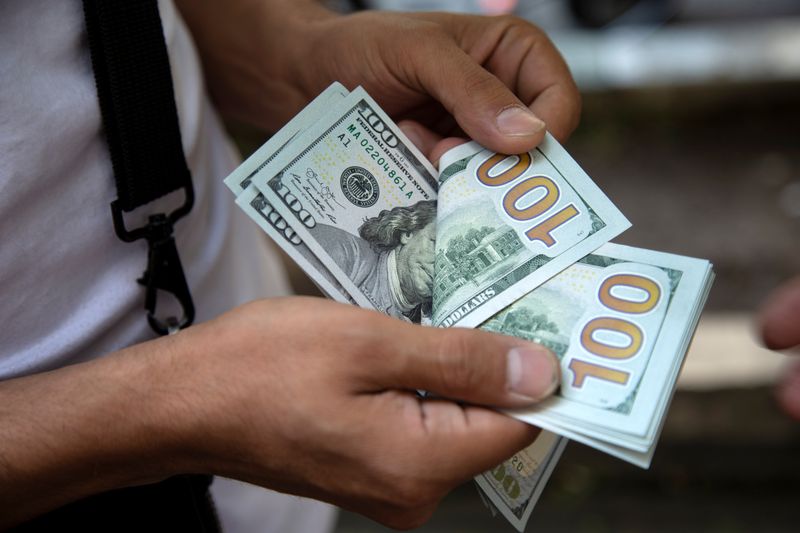Investing.com — The dollar retreated in early European trading on Monday, as investors looked ahead to the release of crucial inflation data later this week and made bets about the Federal Reserve’s future interest rate decisions.
By 03:18 ET (07:18 GMT), the – which tracks the greenback against a basket of other major currencies – fell by 0.13%. also dipped by 0.16%. Both instruments were close to their weakest levels in a year.
Focus this week is squarely on U.S. inflation data, which is due out on Wednesday. The reading is expected to show that while inflation eased slightly in April, it still remained well above the Fed’s 2% annual target range.
The evolution of price growth last month could give investors further clues about the Fed’s monetary policy plans. The U.S. central bank raised borrowing costs by 25 basis points last week but hinted that this would be the peak of its year-long aggressive tightening cycle by removing from its accompanying statement the phrase that it “anticipates” more hikes.
Complicating the Fed’s task was a stronger-than-expected April that showed dipping and ticking higher on a monthly basis. Analysts at ING noted that the wage growth “will keep some of the more hawkish Federal Open Market Committee members nervous about inflation pressures emanating from the labor market.”
Markets are largely pricing in the possibility that have peaked, with Fed Fund futures prices pointing to a 90% probability that the Fed will hold rates in June.
Meanwhile, traders may receive more cues on the recent turmoil in the U.S. banking sector when a Fed survey of is unveiled later in the day.
Fears of a banking crisis, which could in turn spur a recession this year, weighed heavily on the dollar in recent sessions as demand shifted to traditional safe havens such as gold and the yen.
The edged up against the dollar by 0.27% to 1.1046. The increased its benchmark interest rates by 25 basis points as well last week, while president Christine Lagarde signaled that more hikes may be coming.
That said, slumped to a bigger-than-anticipated drop in March, according to data this morning, reinvigorating fears of a potential recession in Europe’s largest economy. in Germany slipped to its largest month-on-month decline as well during that same period.
Elsewhere, the traded 0.07% in the green versus the dollar at 1.2650, as the Bank of England remains in a pitched battle to corral double-digit . The was the first to tighten back in December 2021 and is expected to increase rates a quarter point to 4.5% this week.
The fell 0.09% and remained close to breaching the 7 level as focus also turned to Chinese and indicators this week. Markets are watching for any more cues on a Chinese economic recovery after business activity readings for April pointed to a slowing rebound.
Analysts also expect weakness in and inflation to have persisted in April, pointing to a sluggish recovery even as the country relaxed most anti-COVID restrictions earlier this year.
Read the full article here




